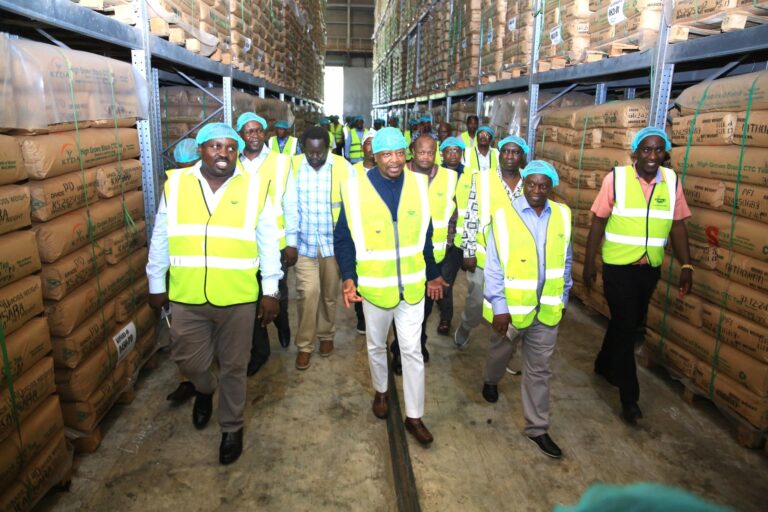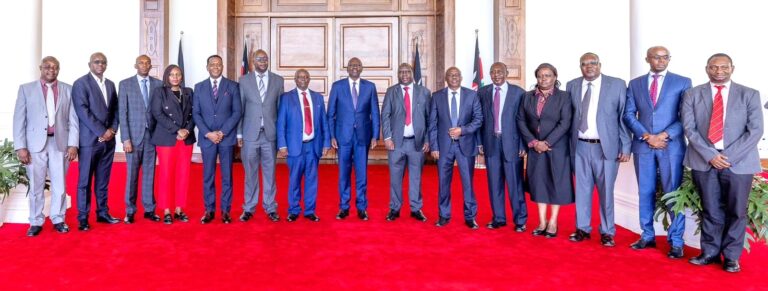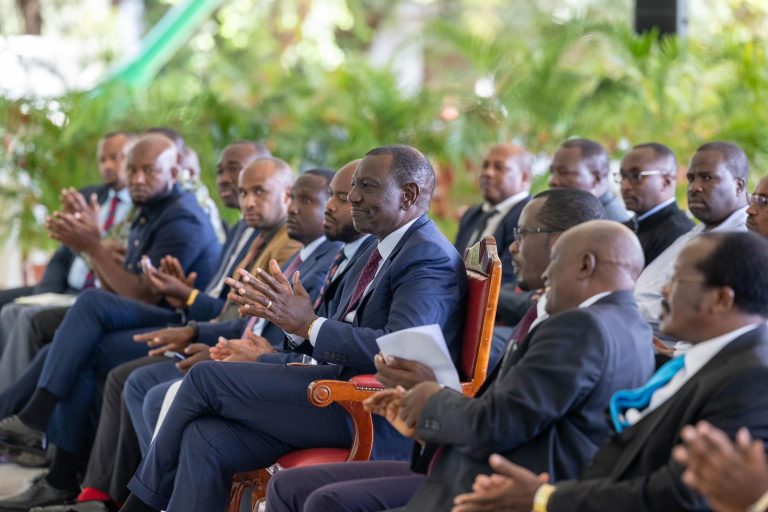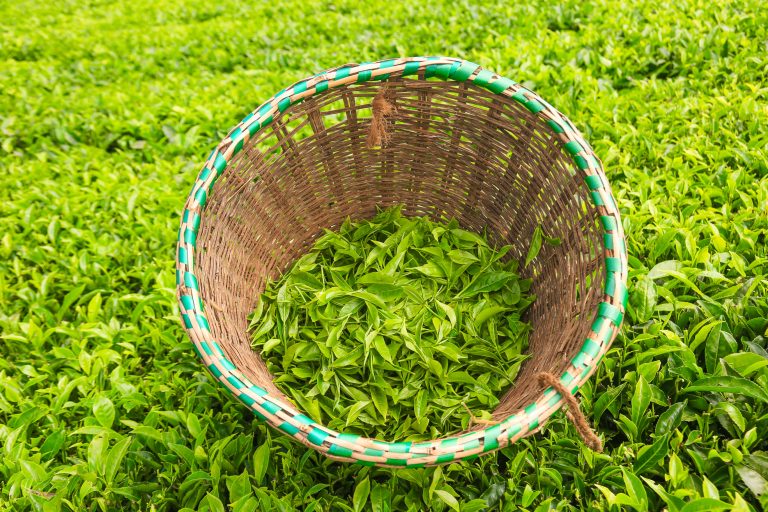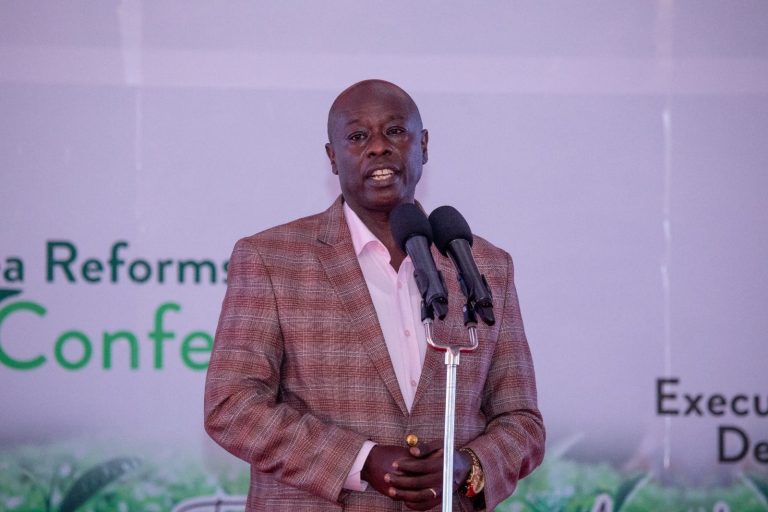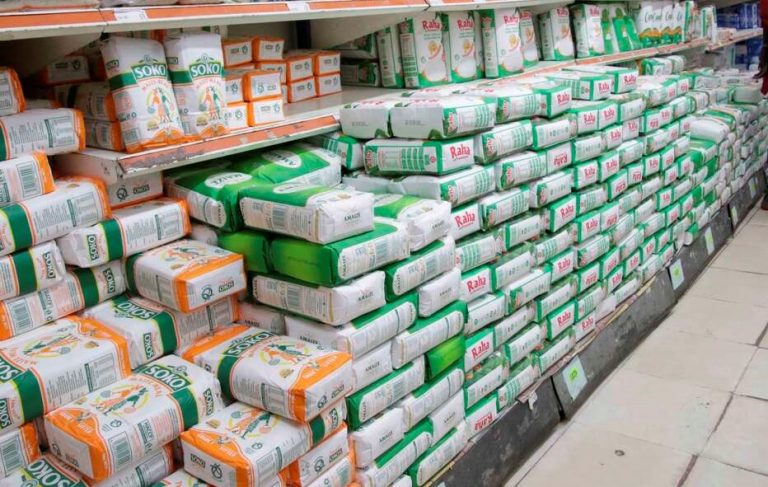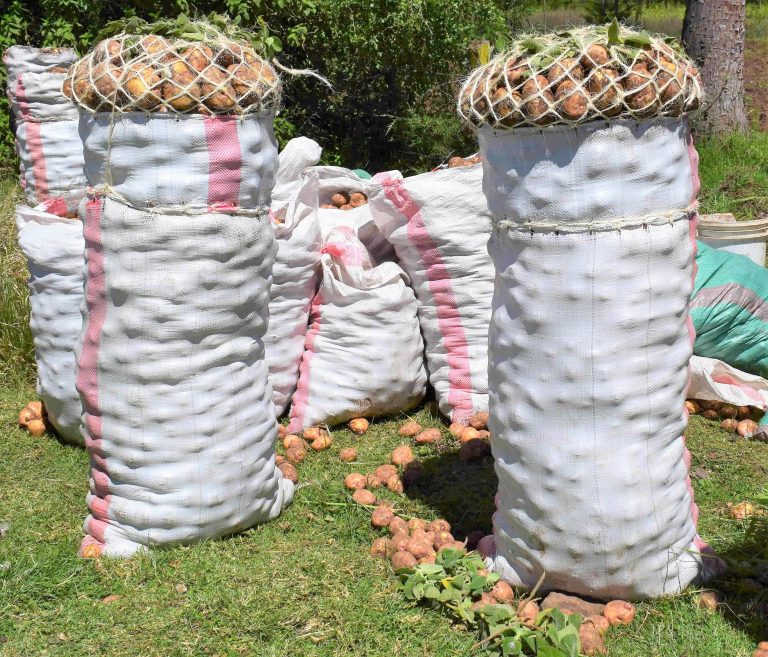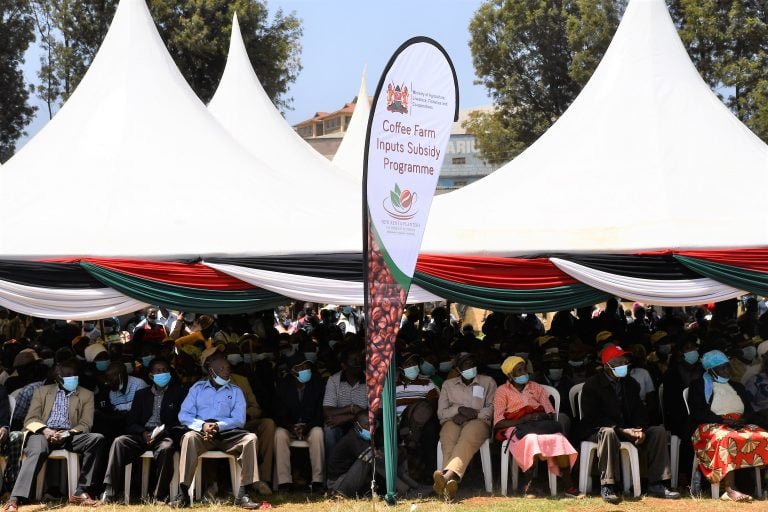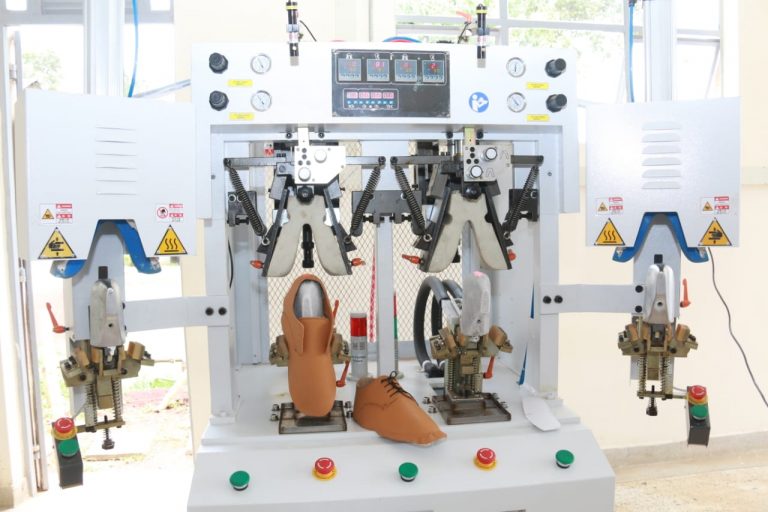By Kimuri Mwangi
The tea sub-sector is very important in Kenya as it supports over 6 million Kenyans directly and indirectly. According to the recently released Economic Survey of Kenya, tea contributed a total of Kshs 122.2 billion to the Kenyan economy in the last year, making it one of the largest contributors to the country’s economy.
However, the sub-sector has been experiencing a myriad of challenges that have affected returns to the tea growers and the livelihoods of many Kenyans who depend on tea. For instance, payment to the smallholder tea growers through the factories managed by KTDA has declined from Kshs. 58.76 Per Kg of Greenleaf in 2016/17 to 36.64 per Kg in 2019/20.
This comes in the backdrop of the recent tea reforms that the government spearheaded and gave the tea farmers a renewed hope. The issue of rising fertilizer costs this year is also another concern to tea farmers.
However, Agriculture CS Peter Munya says his Ministry in collaboration with other Government Agencies and KTDA has been spearheading the implementation of various policy, regulatory and administrative reforms in the tea sub-sector.
To mitigate against declining earnings by the smallholder tea growers, the minimum reserve price was set in July 2021 at the Mombasa tea auction. “Since the setting up of a minimum reserve price, average tea prices for the smallholder teas have recorded a 40% increase at the auction from an average of 1.90 USD/Kg to USD 2.66 by Sale 36 of 6th and 7th September 2021. This has resulted in an increase in revenue to the tea smallholder grower by Kshs. 172 Million within a period of one month,” says Munya.
To address delay in payments to tea growers, the Tea Act requires a tea factory to pay at least 50%of payments due for green leaf delivered every month within 30 days of receipt of the proceeds of the sale of tea and the balance within three months from the end of the financial year. KTDA enhanced the initial green leaf monthly payments to the smallholder tea growers in July 2021 from Kshs. 17to Kshs. 21per Kilogramme. In July 2021, a mini-bonus for the last financial year amounting to Kshs. 1.3 billion was paid to the smallholder tea growers.
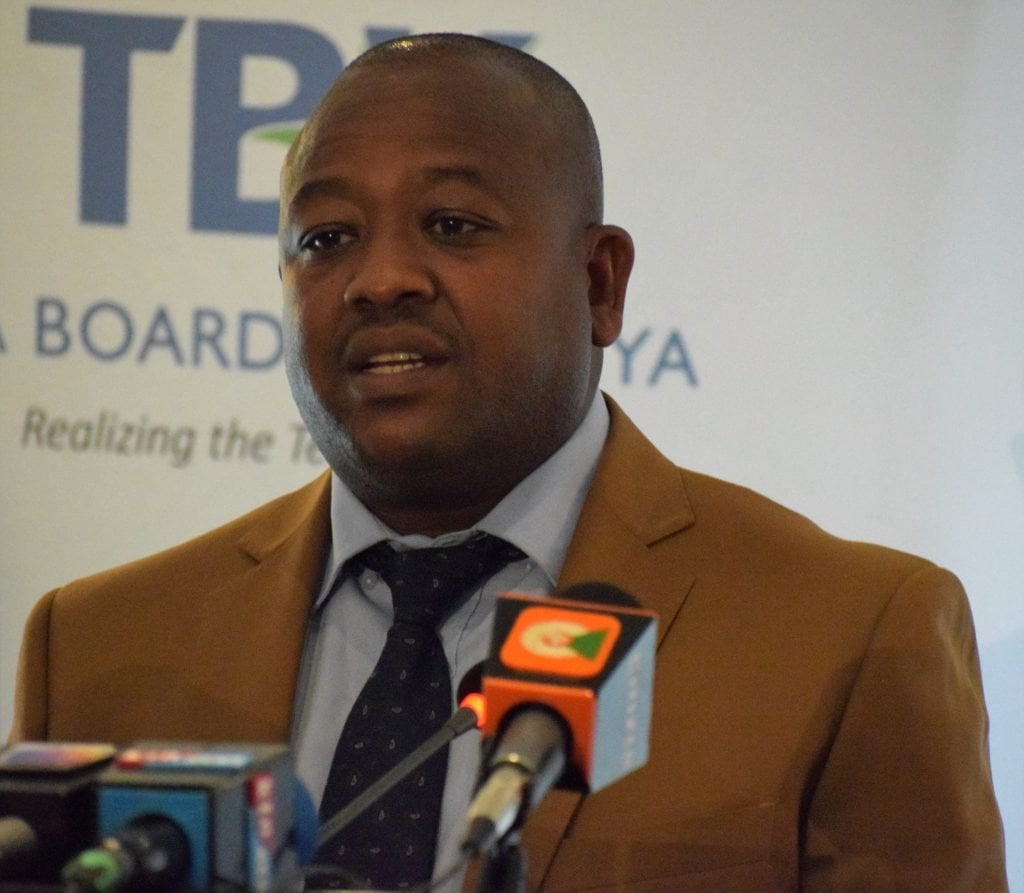
In April 2021, the CS appointed a Technical Working Committee on the design, development and implementation of the tea industry price stabilization framework. The Committee has made recommendations on the modalities of operationalizing the Stabilization Fund envisaged under the Tea Act, 2020 as a mechanism to cushion the tea growers from price fluctuations and price volatility. The Committee is finalizing the report, which will be launched within the next few weeks.
KTDA has procured 86,288 metric tonnes of fertilizer on behalf of smallholder tea growers for application during the short rains season starting in October. The retail price for fertilizer for the current financial year has increased by 54%from Kshs 1,996 in 2019 to Kshs 3,073in 2021 per 50 Kg bag. The CS says the increase has been attributed to international market dynamics such as the rising cost of natural gas, fluctuations in foreign currency exchange rates and global logistical challenges occasioned by the COVID-19 Pandemic. Munya however says since the fertilizer was procured by the previous management at KTDA, investigations will be carried out to find out if the cost was inflated.
The CS also KTDA through the Ministry has requested the Government for fertilizer subsidy amounting to Kshs 1 billion, which will reduce the cost of fertilizer by Kshs. 600 from Kshs. 3,073to Kshs. 2,473per 50 Kg bag. The request for subsidy is currently being processed by the National Treasury.
Between March and June 2021, Smallholder tea growers elected new directors for their tea factories using the system of one grower, one vote as provided for in the Tea Act, 2020. All the 54 smallholder tea factories and KTDA Holdings have fully constituted their Boards and appointed their own company secretaries independent of the KTDA Management Agent.
The new directors of the smallholder tea factories and KTDA Holdings have successfully been inducted on Corporate Governance and financial management to enhance their oversight role in the management of institutions within the smallholder tea sub-sector.
The CS also says an inquiry will be conducted into the alleged statutory and regulatory compliance breaches allegedly committed by the management at KTDA. “A Multi-Agency team appointed by Hon. Attorney General in April 2021 to undertake inspection of KTDA Holdings, subsidiary ownership and fiduciary responsibility of the directors has finalized the assignment. The inspection team has recommended investigation and prosecution of those persons found culpable of committing malpractices in KTDA Holdings, its subsidiaries and smallholder tea factories. The relevant Government law enforcement agencies are studying the report from the inspection team to enable them to take appropriate action. Successful prosecution will lead to recovery of misappropriated assets and act as a deterrent measure against the perpetuation of such malpractices in future. Another key recommendation from the inspection team is the immediate restructuring of KTDA Holdings and its subsidiaries to re-align it to its core mandate of managing the smallholder tea sub-sector for the benefit of the smallholder tea growers,” opines the CS.
To strengthen the regulatory framework for the tea industry, the government says the process of operationalizing the Tea Act, 2020 has commenced.
Five sets of regulations have been developed and are awaiting Gazettement once the Court Orders suspending Sections of the Tea Act providing for the making of Regulations are lifted. The Tea Act, 2020 establishes the Tea Board of Kenya as a body Corporate and gives the Board the mandate to regulate, develop and promote the industry. The process of electing Board members representing the small and medium scale tea growers, large-scale tea growers and the tea traders at the Tea Board of Kenya has commenced and will be concluded within the next few weeks.
However, full implementation of the Tea Act, 2020 has been hampered by ex-parte court orders issued by the courts in several petitions filed against some provisions of the Act. Munya says KTDA has engaged lawyers to withdraw the court cases filed against the Tea Act by the former directors and management of tea factories and KTDA Holdings.
“To streamline green leaf collection and curb the exploitation of farmers, elections of new members for tea Buying Centres will be conducted under the supervision of the Government. To address distortion of green leaf weighing machines, technical audits of the weighing machines will be undertaken across the tea buying centres,” opines Munya
With effect from November 2021, smallholder tea factories will reduce the Brokerage fee payable to tea brokers from 0.5% to 0.2% of the net sales and the Management Agent fee paid by factories from 2.5% to 1.5%. The funds will be set aside in a reserve account awaiting determination of the court cases challenging the provisions of the Tea Act on brokerage and management agent fees. The ministry says the reduction of the brokerage and management agent fees will save smallholder tea factories over Kshs. 1 Billion annually, resulting to more earnings by tea growers.
KTDA has hired a consultant to assess and advise on staff requirements for regional offices and management staff seconded to the factories in order to reduce the staff costs. “To remove oppressive and exploitative provisions in the Management Agent agreements between KTDA and smallholder tea factories, KTDA is engaging with the smallholder tea factories to review the agreements and align them with the provisions of the Tea Act 2020. The Agreements shall further be reviewed and approved by the Tea Board of Kenya before execution. Smallholder tea factories will also develop a procurement policy providing for competitive procurement of goods and services by December 2021,” says the ministry. Munya questions the role of Regional Managers saying all tea operations happen at the factory level but not Regional and recommends scrapping of the posts.
To reduce the cost of credit, KTDA is putting in place mechanisms to ensure small scale tea growers will have access to credit facilities from Greenland Fedha Limited micro-finance-a fully owned subsidiary of KTDA at an affordable rate of 8% per annum with effect from December 2021. This Munya says will cushion the tea growers against high-interest rates charged by Greenland Fedha Limited and other Micro-finance institutions on funds borrowed by growers to meet their day-to-day socio-economic requirements.
In order to establish any malpractices such as fraud or embezzlement of funds by previous boards of smallholder tea factories and KTDA, the newly elected Board will undertake a Forensic Audit on the financial and operational performance of KTDA Holdings and its subsidiary companies and smallholder tea factories for the last ten years. Those found culpable of any financial or other malpractices will be prosecuted.
In order to identify weaknesses in the internal control systems of KTDA, its subsidiary companies and smallholder tea factories, KTDA will engage EACC to conduct a systems audit on their operations. Recommendations of the audit will assist in sealing loopholes contributing to wastage and inefficiencies within the operations of the smallholder tea sub-sector. This the ministry says will reduce operational costs and enhance the returns to the tea growers.

In order also to boost the production of Orthodox teas, whose returns are much higher than that of CTC teas, KTDA intends to install Orthodox Processing lines in 10 factories across the tea growing regions. Towards this end, KTDA has requested a loan or grant from the Government through the agriculture ministry to finance the Orthodox tea diversification initiative. The ministry says the increased production and sale of Orthodox tea will boost the financial performance of the tea factories and returns to the tea growers.
Munya also says in order to ensure transparency in the auction price realization mechanism, the Government through the Office of the Attorney General will conduct an investigation on the operations of the tea auction and make appropriate recommendations. He adds that to enhance access to information by tea growers, KTDA has developed an ICT platform where farmers can log in and get up-to-date information on the tea prices of their respective tea factories.
To reduce transport costs, from 1st November all tea will be transported to Mombasa by the SGR. Munya says this will be done by considering the quantity of tea needed in the auction to cut on the warehousing costs with the other being left at the factories. He says previously, tea used to be stored even for six months in Mombasa warehouses which attracted a lot of storage charges.



